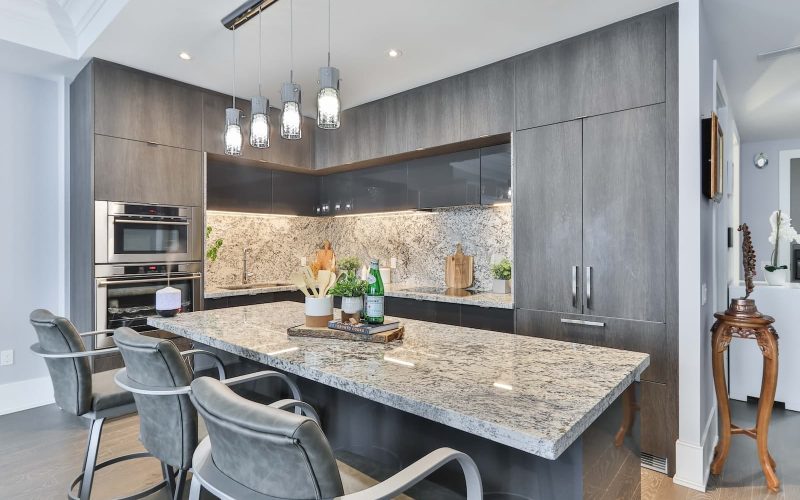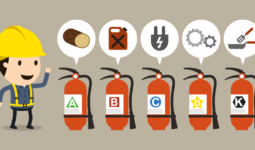There are so many decisions to make when buying a home. From location to price to whether an outdated kitchen is a deal breaker, you’ll need to consider many factors on your journey to home ownership.
One of the most important things is what kind of house you will live in.
Knowing where to start your home search can be challenging with many architectural expressions and home types.
If you’re not interested in a detached single-family home, you’ll likely be faced with a debate about the difference between a condo and a townhouse.
Condos and townhouses are great homes, but a few key differences may make one more suitable for your lifestyle.
Deciding which one is right for you is all about weighing the pros and cons of each and balancing it with the other decisions you’ve made about your ideal home. And here’s where it should start.
Condo Vs. Townhouse
Let’s start by defining the architectural difference between a condo and a townhouse:
Structure
A condo, also called a condominium, is a private residence similar to an apartment in that it is a single unit located in a multi-apartment building or community.
The layout of a condo varies by building, but most buildings have multiple units per floor so that you may have other units above, below, or next to you.
However, unlike an apartment, a condo is owned by its resident, not the landlord, meaning each unit is individually owned.
Condos can come in various sizes and styles and are generally smaller than townhouses. They often share walls with neighboring units.
They also have shared common areas maintained by the HOA or condo association for a fee.
They can be found everywhere, from luxury high-rises in urban areas to residential buildings in the suburbs.
On the other hand, townhouses are terraced houses belonging to their residents.
These single-family residences are arranged in rows and typically include at least two stories, with one or more walls shared with an adjacent townhouse or other units—think of a row house instead of an apartment.
Living in a townhouse is similar to living in a detached single-family home.
Living quarters, like kitchens and dining rooms, are usually on lower floors, while private spaces, such as bedrooms, are on upper floors.
They have no units above or below them. Townhouses are often a popular choice for first-time home buyers and young families.
Condos can be on any floor of a condo building, so agree on the number of stories the unit can have, especially in high-rise buildings.
Most townhouses start on the ground floor and often have two or more stories, which can mean a lot of stairs to climb. So, you have to be comfortable with handling that daily.
Condos and townhouses, which can be one or multiple stories, are found in rural, urban, and suburban areas.
Also, both are the perfect alternative to home ownership in urban areas where traditional single-family homes are too expensive or unavailable.
The biggest difference between a condo and a townhouse is ownership and fees: what you own and how much you pay are at the heart of the difference and often become the key factors in deciding which one is the right fit.
Ownership
What you own is one of the most significant differences between a condo and a townhouse. In a condominium, you own a share of the entire property.
This can be a difficult concept to grasp. You don’t own anything tangible.
You own the airspace within your unit, as well as a partial interest in the common elements of development.
You are buying the interior of individual units and partial ownership of all common amenities, such as recreation centers, swimming pools, tennis courts, etc., and common building and land areas among all unit owners. Think of the condo as an apartment that you own.
Owning a townhouse is more like owning a single-family home. In reality, you own the land on which the house is built and the house itself.
You will often also have a front yard and a small patio or private outdoor space at the back of your property.
The facilities and common areas belong to the homeowners’ association and are used by tenants. Homeowners are also responsible for maintenance; the difference is that the whole structure shares some walls with other structures.
“Condos” and “townhouses” are more exclusive to ownership than architectural terms. You can live in a property that looks like a townhouse but is a condominium in its right; for example, you own the structure but not the land it sits on.
If you are primarily looking for townhouse-style properties, ask for ownership rights, especially if you want to own your front and back yard.
HOA fees
You can’t discuss the difference between a condo and a townhouse without mentioning Homeowners Associations (HOAs).
When you buy a condo or townhouse, you are needed to pay a monthly HOA fee.
The HOA, managed by other tenants (and which you can join if you wish), takes care of the daily maintenance of the common areas.
Condos almost always have higher HOA fees than townhouses. That’s because condos have more common areas(i.e., shared spaces) and often unique amenities, like an exercise room or a rooftop grill, that require more money to maintain.
The monthly condo HOA fees may include water, insurance coverage, cable or DSL Internet service, and other services or utilities.
Townhouses also often have HOA fees, but they tend to be much lower and usually only cover small services, such as garbage collection and lawn maintenance.
HOA Rules and Regulations
Before buying a condo or townhouse, potential buyers should request a copy of HOA meeting minutes, financial reports, and rules and regulations, the latter of which is often referred to as CC&Rs (covenants, conditions, and restrictions) but may go by different names like terms and conditions.
Depending on the HOA, these documents can be long to read (up to 50 pages), but they are usually necessary.
They tell buyers how restrictive life under an HOA may or may not be, how financially sound the governing body is, and how often (and by how much) HOA fees increase over time.
There is no set standard for HOA rules. Each committee votes on issues and guidelines for individual communities.
However, there are some rules and regulations common to most households.
They include the following:
- Common space rules: common areas working hours, rights, and restrictions on their use
- Pet restrictions: if pets are allowed, what types of animals are allowed, breed restrictions, weight restrictions, how many pets can live in one unit
- Garbage/recycling rules: how, when, and where to dispose of garbage and recycling
- Decorating Restrictions: If signage, Christmas lights, etc., are allowed on windows or the lawn
- Land Restrictions: Townhouse owners may be prohibited from drastically (or even slightly) altering the landscaping of their yards. They may also be prohibited from changing paint colors, letterbox styles, etc.
Cost
Even with monthly housing allowances, owning a condo or townhouse is often more affordable than owning a family home.
You should never buy more homes than you can afford, so condos and townhouses are often great options for first-time home buyers or anyone on a budget.
As for the difference between a condo and a townhouse purchase prices, condos are generally less expensive since you are not investing in land.
However, condo HOA fees tend to be higher because more jointly-owned spaces exist.
Other costs to consider are property taxes, home insurance, and home inspection fees, which vary depending on the type of property you buy and your location.
Consider this when checking to see if a particular home fits your budget.\You must also consider that mortgage interest rates are generally higher for condo properties.
Resale Value
There is no safe investment. The resale value of your home, whether a condo, townhouse, or single-family home, depends on several market factors, many of which are beyond your control.
However, condos and townhouses may have some advantages when it comes to factors within your control.
A well-run HOA will ensure that common areas and general landscaping will always look their best, meaning you will have less to worry about making a good first impression of your building or community.
You’ll always be responsible for ensuring your home is in salable condition.
Still, a great pool or well-maintained grounds can make a potential buyer look past a few things that can stand out more in a single-family home.
Regarding appreciation rates, condos generally have a slower appreciation rate than other real estate types, but times change.
Recently, they have even surpassed single-family homes in their appreciation rate.
Privacy and Freedom
Another difference between a condo and a townhouse you need to consider when choosing a house is the degree of privacy you will tend to have.
Convenience is the main benefit enjoyed by owners of condos and townhouses.
Therefore, when you live in a condo, you must remember that you are part of a community. It is important not to inconvenience your co-owners.
For this to be possible, you must follow the rules established by the HOA. Each HOA has covenants, conditions, and restrictions (CC&R) rules to protect all unit owners.
They are governed by a board of condo owners whose interest is to ensure that life in the building or the community works in the best possible way.
The conditions established in the condominiums and the fact that the HOA provides maintenance services can limit your privacy and freedom. Rules can specify:
- What types of pets are allowed, what breeds, how can they live in the unit, and what is their weight limit
- How, where, and when to dispose of garbage and recyclables
- What exterior paint colors can be used, what styles of mailboxes can be used, where they can be located, and whether exterior landscaping is allowed?
- Can Christmas lights and other decorations be displayed on the premises?
In contrast, townhouse owners are responsible for their residences and the land around them.
Therefore, they have the freedom to do whatever they want with the interior and exterior of their home.
So, if you’re concerned about having a private yard or avoiding noisy neighbors, a townhouse might be a better choice than a condo.
Legal Status
In the United States and most of Canada, apartment buildings are governed by specific laws established by federal and local governments.
However, state townhouses are regulated under rules that apply to single-family or detached homes.
Conclusion
Despite the difference between a condo and a townhouse, these types of homes also share many similarities and are both great options, depending on your preferences.
Finding your answer to the condo vs. townhouse debate comes down to weighing the difference between a condo and a townhouse and determining which option is best for your family, your budget, and your plans.
There is no real winner—both have pros and cons and a lot in common.
If you think you might be a good candidate for these housing situations, use the information provided to determine your priorities.
Find the property you want to buy, then research its details, prices, and costs. Then, you can make the best decision.





